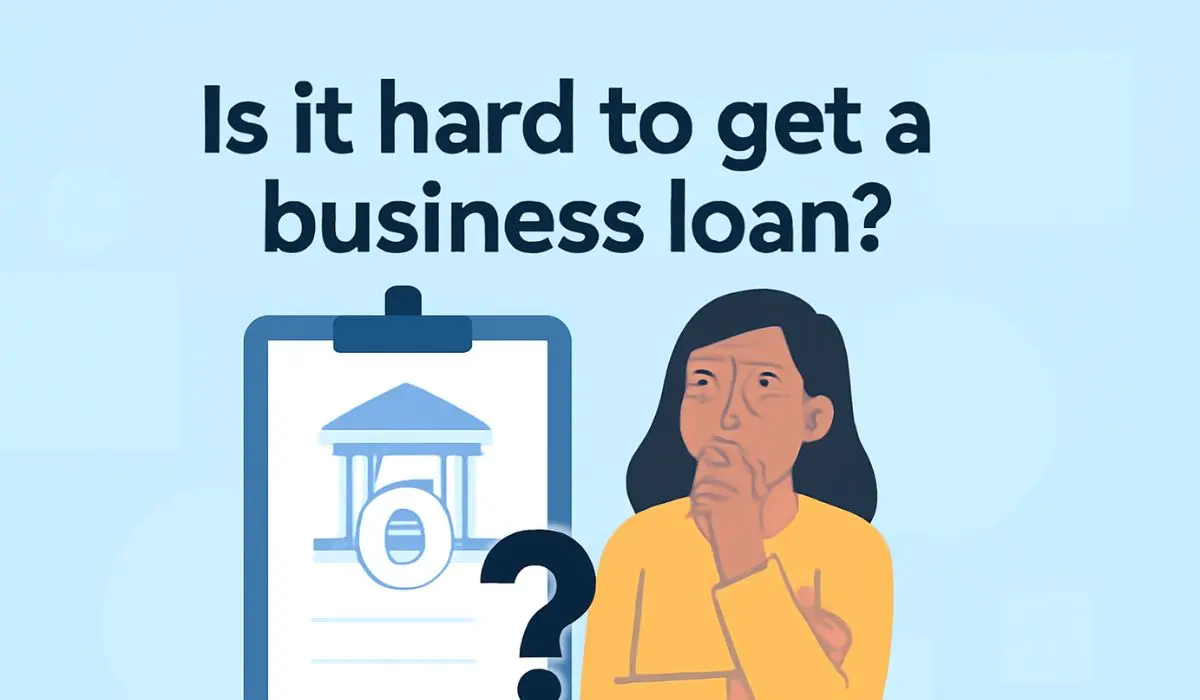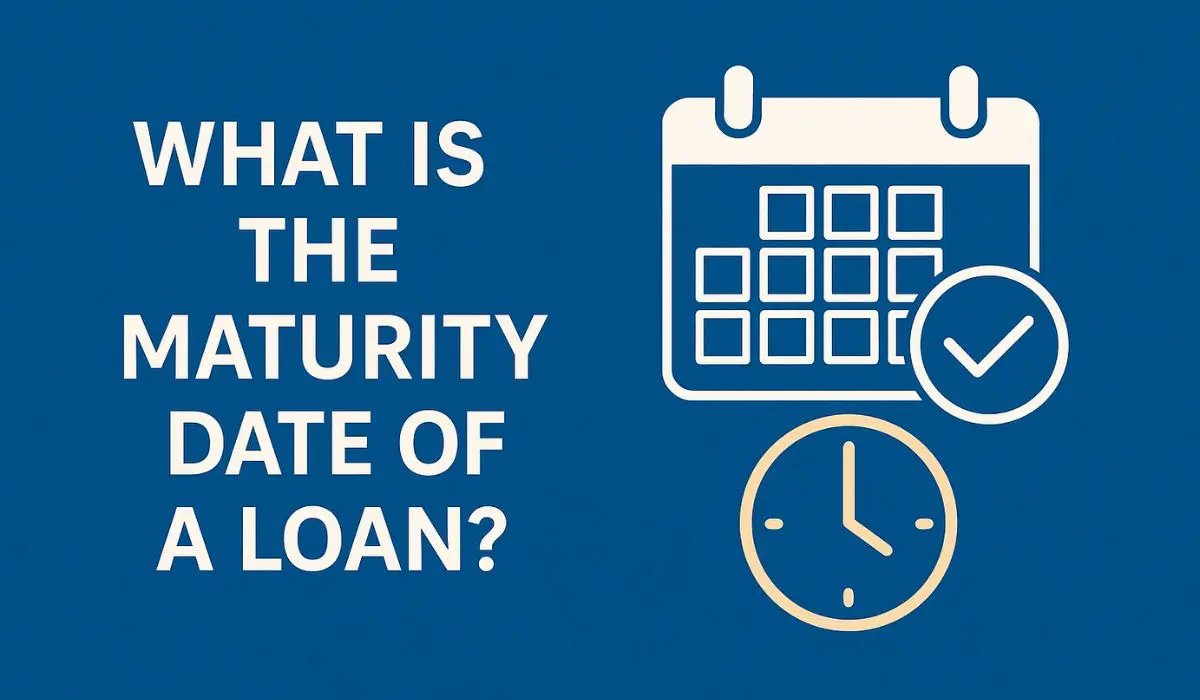Starting or growing a business often requires outside funding. Business loans can help you expand operations, purchase equipment, or cover operational costs. However, one of the most common questions business owners ask is: “Is it hard to get a business loan?” The answer depends on several factors, including your business’s financial health, the type of loan you’re seeking, and the lender you approach.
Factors That Influence Business Loan Approval
1. Credit Score
Your credit score plays a major role in determining whether you can get approved for a business loan. Lenders use your credit score to gauge how responsibly you’ve managed debt in the past.
- Personal Credit Score: If you’re a small business owner or startup, lenders often look at your personal credit score when you lack a business credit history. Typically, a score of 690 or higher increases your chances of approval for a traditional loan.
- Business Credit Score: Once your business has established credit, lenders will assess the business’s credit score. Good business credit (usually above 80) can help you secure better rates and terms.
If your credit score is on the lower end, consider applying with alternative lenders or microloans that are more lenient.
2. Time in Business
The length of time your business has been operational can influence your loan eligibility. Generally, the longer your business has been running, the more likely you are to qualify.
- Startups: New businesses may find it more difficult to secure a traditional business loan due to a lack of financial history. However, SBA microloans or business credit cards may be a good alternative.
- Established Businesses: If your business has been around for 2+ years, you have a proven track record of managing operations and cash flow, making it easier to qualify for a loan.
3. Revenue and Cash Flow
Lenders need to know that your business generates enough revenue to repay the loan. Typically, lenders set minimum annual revenue requirements ranging from $50,000 to $250,000.
- Cash Flow: Lenders also analyze your cash flow (the money your business earns versus what it spends). A strong cash flow indicates that you can handle loan repayments, even during slow periods.
Before applying for a loan, ensure that your business generates stable cash flow and that you have realistic expectations about the loan amount.
4. Industry
The industry you operate in can impact your chances of securing a business loan. Lenders are more willing to approve loans for businesses in stable and profitable industries.
- High-Risk Industries: Certain industries, like gambling, adult entertainment, or multi-level marketing businesses, may face more difficulties in securing loans due to perceived risks.
- Stable Industries: Businesses in industries like healthcare, technology, and retail are often seen as lower risk, making it easier to secure financing.
While it’s not impossible for businesses in high-risk industries to get a loan, they may face more challenges or higher interest rates.
5. Collateral
Many lenders, especially traditional banks, may require collateral to secure a loan. This is an asset of value, such as property, inventory, or equipment, that the lender can claim if you fail to repay the loan.
- Secured Loans: Collateralized loans, such as equipment financing or real estate-backed loans, are less risky for lenders, meaning they may be easier to obtain.
- Unsecured Loans: These loans do not require collateral but are often harder to qualify for, especially for newer businesses or those with weak financials.
If you don’t have enough assets to secure a loan, consider looking into SBA loans or online lenders that offer more flexible terms.
Loan Types and Their Accessibility
Different types of loans come with varying levels of difficulty to qualify for:
Traditional Bank Loans
Traditional bank loans offer low interest rates, long repayment terms, and large loan amounts. However, qualifying for a bank loan can be tough, especially for new businesses or those with poor credit.
- Pros: Competitive interest rates, long repayment terms, large loan amounts.
- Cons: Strict requirements, long approval times, slow funding.
SBA Loans
The Small Business Administration (SBA) offers government-backed loans, which are generally easier to qualify for compared to traditional bank loans. SBA 7(a) loans, for instance, can offer up to $5 million with competitive rates and longer terms.
- Pros: Low rates, long repayment periods, government-backed.
- Cons: Strict eligibility requirements, lengthy approval process.
Online Business Loans
Online lenders are an increasingly popular choice for business owners who need fast access to funds. Online loans typically have higher interest rates than bank loans, but they are more accessible and faster to approve.
- Pros: Fast approval, flexible eligibility, easy online application.
- Cons: Higher interest rates, shorter repayment periods.
Micro lenders
If your business is in its early stages or struggles with poor credit, micro lenders may offer small loans (usually up to $50,000). These lenders are nonprofit organizations that may have more flexible requirements compared to traditional banks.
- Pros: Easier to qualify, good for startups.
- Cons: Small loan amounts, potentially higher interest rates.
Steps to Improve Your Chances of Loan Approval
If you’re concerned about your eligibility for a business loan, there are several steps you can take to improve your chances:
1. Improve Your Credit Score
A higher credit score is one of the most significant factors in securing a loan. Here’s how to boost your score:
- Dispute errors on your credit report.
- Pay down debt.
- Make timely payments to improve your credit history.
2. Prepare Financial Documents
Lenders will request various financial documents, including:
- Tax returns (business and personal)
- Profit and loss statements
- Cash flow statements
Having these documents ready will streamline your application process.
3. Build a Solid Business Plan
A clear business plan that outlines your revenue, growth strategies, and how you will use the loan can help convince lenders that you’ll be able to repay the loan.
4. Explore Alternative Financing Options
If you’re having trouble qualifying for a traditional loan, consider alternatives like:
- Business credit cards for small, everyday expenses.
- Invoice factoring for quick access to cash based on your outstanding invoices.
- Crowdfunding to raise funds without relying on a traditional loan.
Common Mistakes to Avoid When Applying for a Business Loan
When applying for a business loan, avoid these common mistakes:
- Asking for too much money: Request only what you need to ensure the loan is manageable.
- Failing to prepare: Make sure all your paperwork is accurate and complete before submitting your application.
- Not comparing lenders: Shop around to find the best terms and interest rates.
Conclusion
Getting a business loan can be challenging, but it’s not impossible. By understanding the factors that influence approval, choosing the right loan type, and preparing your business’s financials, you can increase your chances of securing the funding you need. Whether you’re seeking a traditional bank loan, SBA loan, or alternative financing, taking the time to plan and improve your credit will go a long way in making the process smoother.
While the road to obtaining a business loan may have its hurdles, with the right preparation and strategy, you can secure the funds necessary to grow your business.
FAQs
Yes, getting your first business loan can be challenging, especially for new businesses without a credit history. However, it’s possible with proper documentation, a solid business plan, and by meeting lender requirements.
The odds depend on several factors like your business’s credit score, revenue, industry, and time in business. Established businesses with good financials generally have higher approval rates.
A personal credit score of 690 or higher is typically required for traditional bank loans. For online lenders, a lower score (around 500-600) may be accepted, though with higher interest rates.
It’s not overly difficult to get a business loan with an LLC, but it depends on your credit score, time in business, and revenue. Lenders will assess the LLC’s financials just like any other business.
The amount an LLC can borrow depends on its financial health, credit score, and lender type. For example, SBA loans can provide up to $5 million, while online lenders may offer smaller loans up to $500,000.
An LLC doesn’t have an automatic credit score but builds one over time based on business credit activity. It starts with no score and can establish one by opening accounts and paying debts on time.





